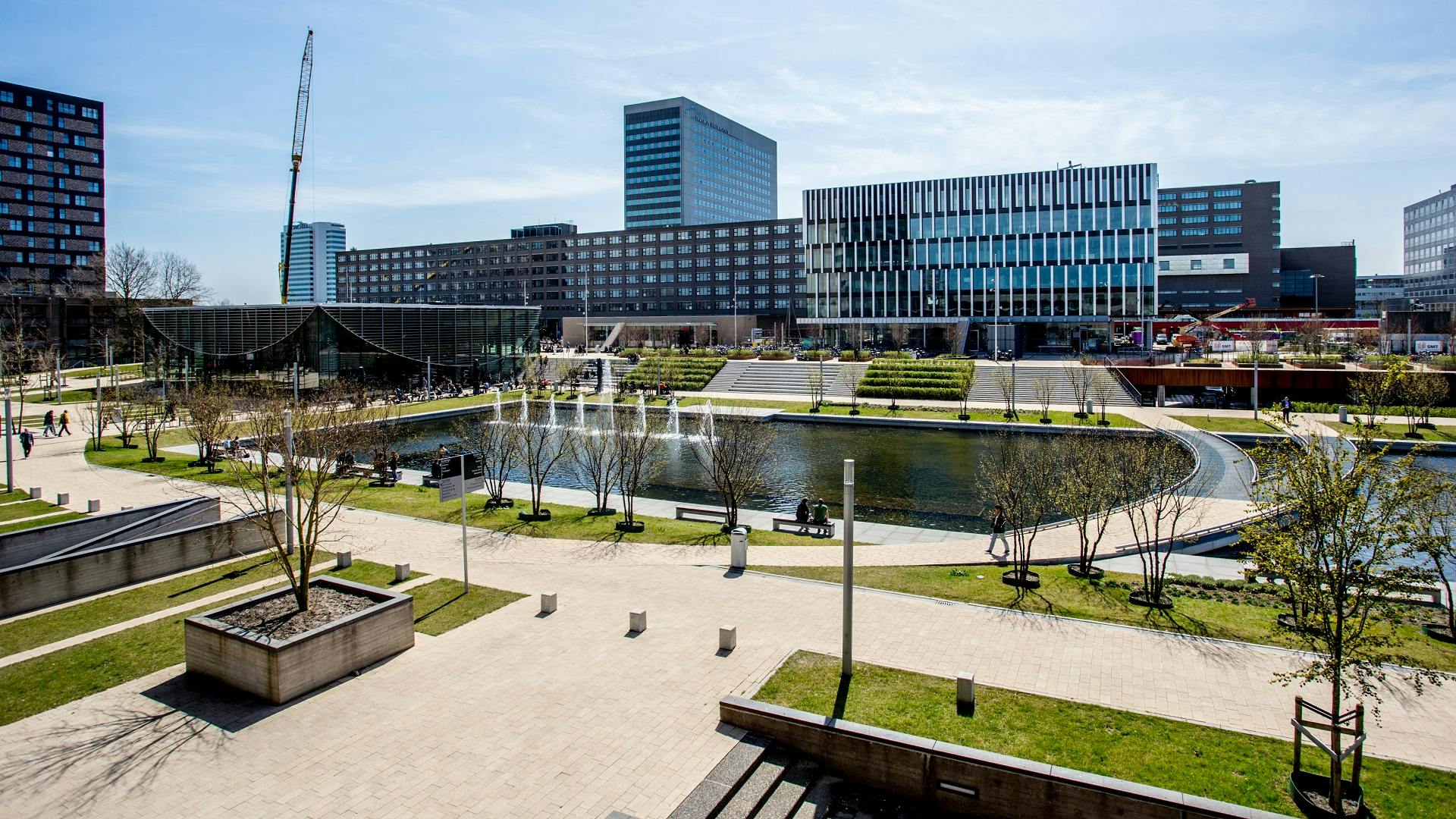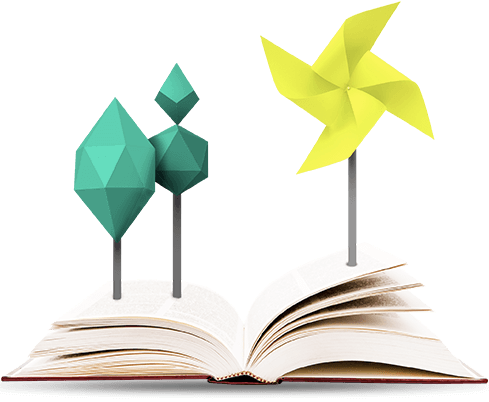Wo bachelor - Kunst en Cultuur
Algemene Cultuurwetenschappen
Deze opleiding heet ook wel:
International Bachelor Arts and Culture Studies
Variant:
Dual Degree in Arts and Sciences (RASL)

Over de opleiding Open dag: 4 oktober

Tijdens deze bachelor bestudeer je de wereld van kunst en cultuur vanuit een sociologisch en economisch perspectief, maar je maakt ook kennis met theorieën over media, beleid, marketing en esthetiek.
Je zult de dynamische sector van kunst en cultuur grondig verkennen, waar creativiteit, innovatie en ondernemerschap centraal staan. Deze essentiële kenmerken zijn niet alleen van toepassing op kunstenaars, maar vormen ook de kern van jouw rol als toekomstige specialist in kunst en cultuur. Jij bent degene die achter de schermen werkt om de wereld van kunst en cultuur vorm te geven, en daarmee een onmiskenbare impact maakt op hoe deze sector zich ontwikkelt en met het publiek verbindt.
De huidige culturele sector vraagt om creatieve professionals met analytische vaardigheden en diepgaande kennis van cultuurbeleid, kunsteducatie, doelgroepen, erfgoed, culturele organisaties, creatieve industrieën en ondernemerschap in een mondiale context. Naast het opbouwen van een theoretische basis, pas je ook je brede kennis over kunst en cultuur toe in de praktijk tijdens de verplichte stage.
Keuzes binnen de opleiding
-
Het Rotterdam Arts & Sciences Lab (RASL) biedt studenten een dubbel diploma aan; een universitair diploma en een HBO-diploma. Dit is de eerste van zijn soort in Nederland.
Het "Double Degree" programma is een 5-jaar lange bachelor opleiding waar studenten twee full-time bachelor diploma's combineren: het Liberal Arts & Sciences programma aan Erasmus University College (EUC) of de internationale bachelor Arts & Culture Studies bij Erasmus University, gecombineerd met of muziek bij Codarts, of Kunst en Design bij Willem de Kooning Academy (WdKA). Het programma daagt studenten uit om een academische studie te combineren met een praktischere en creatievere studie. Het curriculum is een 5-jaar lange combinatie van vakken van beide instituties, zodat studenten van beide instituties vakken volgen elk jaar. Studenten betalen collegegeld voor maar één van de twee bachelor programma's door de 5 jaar heen, wat het dus ook financieel aantrekkelijk maakt. Daarnaast zullen studenten zich los moeten aanmelden voor beide instituties wanneer ze zich aanmelden voor het double degree.
Kennismaken met deze variant?
-
In the specialist field Culture and Economics, you study the art world from a cultural economic perspective.
Artists, art and cultural institutions and the public all have to deal with economics and organisation. In the cultural sector, plans are made, events and products are organised, designed, sold and purchased. The government, among other parties, plays an important role through its policy and decisions about whether or not to provide funding. In the specialist field Culture and Economics, you study the art world from this cultural economic perspective. This is a typical Rotterdam approach to arts and culture studies.
The second and third year of the programme build on the economic subjects studied in the first year. The economic and business aspects of culture are addressed at different levels: at the level of the individual artist, the cultural organisation, the employment market and the government.
Kennismaken met deze afstudeerrichting?
-
Central to this specialisation are the creation, distribution and consumption of various media and media products and the role of media in the communication of culture.
Cultural industries, media, broadcasters, film, music and the Internet play an important role in the political, social and cultural life and are becoming increasingly important in the cultural economy.
How have different media sectors (such as the broadcasting sector, the printed press and the Internet) developed in recent decades and what changes and dilemmas do they currently face? How are media products created and how do readers, viewers and listeners use these products? What role does the media play in processes of cultural communication and in shaping the perception of art and culture?
Kennismaken met deze afstudeerrichting?
-
When choosing the 'Culture and Society'-track you get acquainted with up-to-date sociological theories and will develop relevant research skills in studying these art worlds.
You learn to investigate how artists and their audiences interact, which role gatekeepers are playing in selecting artistic works, and which strategies cultural industries, cultural organizations and governments develop to steer artistic processes via the market or policy. You also study how and why different groups of people participate in art worlds (as creators themselves or as consumers), and how the boundaries between consumers and creators are fading due to technological developments such as digitization, changing the interrelationships and the (often unwritten) rules that shape art worlds. In doing so, you get all the knowledge and knowhow necessary to become a professional in one of the art worlds - film, visual art, architecture, popular music, etc. - yourself, or to develop an academic career in the sociology of art and culture.
Kennismaken met deze afstudeerrichting?
-
If you are an ambitious and talented student, we offer you more academic challenges, more opportunities to delve deeper into particular topics, and the chance to work with an arts organisation on an actual case.
The honours programme aims at deepening and broadening the subject material of our regular curriculum. This takes place by an in-depth reading of a number of academic texts, discussing these works with the lecturer and fellow students, and producing a paper or other type of report or presentation at the end of each theme. Each lecturer involved is responsible for three seminars dealing with a current topic in her or his area of expertise. Finally, students will learn to do impactful research by doing a project embedded within a (Rotterdam) arts organization and present their findings at a final symposium.
Students investing fully in this course will be able to:
* Understand and compare complex academic texts on contemporary topics in arts and culture studies.
* Gain insight in the complex relation between theory and empirical research.
* Apply their new knowledge and skills, both within an academic context (through assignments) and within a societal context (making impact through the honours research project).
Kennismaken met deze honoursprogramma?
Op Studiekeuze123 kun je informatie vergelijken. Op de website van de onderwijsinstelling kun je verder lezen als de opleiding je aanspreekt.
Bekijk instellingswebsiteBekostiging: Overheid
Studiepunten: 180 ECTS
Diploma: Bachelor
Toelating & selectie € 2.601 wettelijk collegegeld in 2025 / 2026

Om toegelaten te worden tot een opleiding moet je aan bepaalde eisen voldoen.

Toelatingseisen
Wettelijke eisen
- CM Directe toegang
- EM Directe toegang
- NG Directe toegang
- NT Directe toegang
Bekijk de aanvullende toelatingseisen die door de instelling worden gesteld op de website van de onderwijsinstelling.
Studiekeuzecheck
We hebben onvoldoende betrouwbare informatie over dit onderwerp.
Collegegelden
Wettelijk collegegeld
Wettelijk collegegeld
Meer over collegegeld
Meer informatie over collegegeld lees je op de overzichtspagina Alles over collegegeld.
Wettelijk of instellingscollegegeld?
Heb je recht op het wettelijk collegegeld of betaal je het instellingscollegegeld? Gebruik onze Collegegeldwijzer
Hoe hoog is het instellingscollegegeld? Bekijk het op de website van de universiteit
Meer weten?
Belangrijke data 1 mei landelijke aanmelddeadline

Mis geen belangrijke gebeurtenissen. Check belangrijke data ook bij de opleiding zelf.

-
1
mei 2025
Landelijke aanmelddeadline -
1
september 2025
Start opleiding
Alle startmomenten -
4
oktober 2025
Open dag / avond
Meer open dagen
Waarom moet ik mij op tijd aanmelden?
Tijdens de opleiding 152 eerstejaars

Geen enkele opleiding is hetzelfde. Kijk daarom naar de kenmerken van een opleiding.

Studeren bij deze instelling
Studieadvies
in 12 maanden
Dit is een bindend studieadvies.
Studieverloop
Doorstroom
Doorstuderen
Diploma binnen 4 jaar
Tevredenheid 3.9/5.0 algemene tevredenheid

Hoe beoordelen de (oud)studenten deze opleiding?

Nationale Studenten Enquête
Hoe tevreden waren studenten in 2024 over aspecten van deze opleiding?
|
Deze opleiding
Erasmus Universiteit Rotterdam |
Landelijk gemiddelde
Algemene Cultuurwetenschappen Vergelijk alle 3 opleidingen |
verschil | |
|---|---|---|---|
|
Studenttevredenheid
Meer informatie | 3.9 / 5 | 3.9 / 5 | |
| Sfeer | 4.1 / 5 | 4.2 / 5 | |
| Studiefaciliteiten | 4.0 / 5 | 4.0 / 5 | |
| Studie opnieuw kiezen | 3.9 / 5 | 3.9 / 5 | |
| Inhoud en opzet | 3.8 / 5 | 3.8 / 5 | |
| Aansluiting beroepspraktijk | 3.2 / 5 | 3.1 / 5 | |
|
Studenttevredenheid
Meer informatie | 3.9 / 5 | 3.9 / 5 | |
| Sfeer | 4.1 / 5 | 4.2 / 5 | |
| Studiefaciliteiten | 4.0 / 5 | 4.0 / 5 | |
| Studie opnieuw kiezen | 3.9 / 5 | 3.9 / 5 | |
| Inhoud en opzet | 3.8 / 5 | 3.8 / 5 | |
| Aansluiting beroepspraktijk | 3.2 / 5 | 3.1 / 5 | |
| Docenten | 3.8 / 5 | 3.9 / 5 | |
| Lesstof in het Engels | 4.4 / 5 | 4.4 / 5 | |
| Studiebegeleiding | 4.0 / 5 | 4.0 / 5 | |
| Toetsing en beoordeling | 3.6 / 5 | 3.7 / 5 | |
| Betrokkenheid en contact | 3.9 / 5 | 4.0 / 5 | |
| Studiedruk |
Oordeel afgestudeerden
We hebben onvoldoende betrouwbare informatie over dit onderwerp.
Studeren met een ondersteuningsbehoefte
Veel studenten hebben tijdens hun studie behoefte aan extra voorzieningen of flexibiliteit in het onderwijs. Dit kan komen door een aandoening zoals dyslexie, een chronische ziekte, psychische klachten, maar ook topsport of ondernemerschap tijdens de studie. Studenten beoordeelden hoe tevreden ze zijn over de ondersteuningsmogelijkheden bij hun onderwijsinstelling.
Na afstuderen


Meest gekozen masters
| Master | Aantal | % |
|---|---|---|
| Kunst- & Cultuurwetenschappen | 34 studenten | 52% |
| Mediastudies (1-jarig) | 13 studenten | 20% |
Contact

Meer weten over de opleiding? Neem contact op met Erasmus Universiteit Rotterdam

Adres
Burgemeester Oudlaan 50
3062 PA
Rotterdam

Meer informatie
Bezoek ook de website van Erasmus Universiteit Rotterdam
Bezoek website van Erasmus Universiteit RotterdamStudie in Cijfers
Bekijk in één oogopslag hoe deze opleiding het doet in vergelijking met het landelijk gemiddelde van deze studie
Bekijk hier de samenvatting



